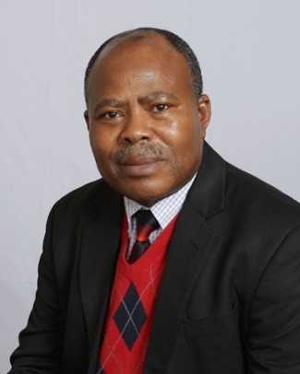Black History at SIUE Includes Dr. Emmanuel Eneyo
 Emmanuel Eneyo, PhD, joined the Southern Illinois University Edwardsville faculty in 1989 as an assistant professor in industrial engineering and advanced through the ranks.
Emmanuel Eneyo, PhD, joined the Southern Illinois University Edwardsville faculty in 1989 as an assistant professor in industrial engineering and advanced through the ranks.
Eneyo served as the program director for industrial engineering from 1999-2005. In 2000, the manufacturing engineering program was added to industrial engineering, causing the unit’s title to be changed from Industrial Engineering (IE) to Industrial and Manufacturing Engineering (IME).
He continued his term as the program director for the newly constituted industrial and manufacturing engineering from 2000-05. Eneyo was responsible for the accreditation of the industrial engineering program in 2002 and successfully got the manufacturing engineering program through its first ABET accreditation visit in 2004.
For more than 15 years at SIUE, Eneyo was the only black faculty in the School of Engineering (SOE). Today, he is the only black faculty in his department and one of only two black SOE faculty members. Currently, he is the most senior of a small group of black professors on campus.
During Eneyo’s long and productive career at SIUE, he has worked to ensure that students receive a quality education, supported black engineering students in their pursuit to the finish line and advocated for more black faculty.
“I cannot be satisfied with any achievements I receive,” said Eneyo. “My concern is for others and how to make things more inclusive, especially for the underprivileged and the next generation.”
Some of Eneyo’s accomplishments include:
- One of three faculty members hired 30 years ago to develop the engineering program at SIUE
- Faculty advisor for the SIUE student chapter of the National Society of Black Engineers (NSBE) since 1989
- Improved the student enrollment of a struggling industrial engineering program from its lowest number of 14 in August 1999 to 45 in August 2000, during his first year as program director
- Hired and mentored a tenure-track faculty for the manufacturing engineering program and three adjunct faculty members
- Supervised two internal SIUE program reviews of industrial and manufacturing engineering programs in fiscal years 2000 and 2005.
- Instrumental in the establishment of a formal Faculty Search Policy for the School of Engineering, which was approved in 2013
- Named Outstanding Faculty in the SIUE Department of Industrial Engineering in 2013
- Winner of NSBE’s 2016 Golden Torch Award for Lifetime Achievement in Academia
“I’ve been at SIUE for a long time,” reflected Eneyo. “I have been a faculty senator. I have also served on various University level committees, including Calendar Conversion/Implementation, BRIDGE, General Education and the provost’s Promising Recruitment Initiatives Mark Excellence (PRIME) committee, which dealt with targeted recruitment for faculty. There has been a lot of changes, but we still have a long way to go.”
Eneyo’s interest in diversity and inclusion also extends to the SIUE East St. Louis Center, where he has worked with students from the SIUE East St. Louis Charter High School and Upward Bound Programs.
“I would love to see more students from the SIUE East St. Louis Center programs admitted to SIUE’s School of Engineering,” he offered, “but if we want to increase the number of black students in our school, we have to offer scholarship money for them.”
“As a black faculty person, I’m concerned about leaving here without more ways and means for black students to excel across campus. But what gives me hope now, is the existence of the newly formed SIUE Black Faculty and Staff Association (BFSA),” said Eneyo, a BFSA founding member and the organization’s second vice president for faculty.
The group has been a long time in coming, according to Eneyo, who said the idea of BFSA was conceived more than 20 years ago.
Eneyo punctuates the end of his interview with the following quote from Dr. Martin Luther King Jr.
“Forces that threaten to negate life must be challenged by courage, which is the power of life to affirm itself in spite of life’s ambiguities. This requires the exercise of a creative will that enables us to hew out a stone of hope from a mountain of despair.”
Photo: Emmanuel Eneyo, PhD, professor in the Department of Mechanical and Industrial Engineering.









